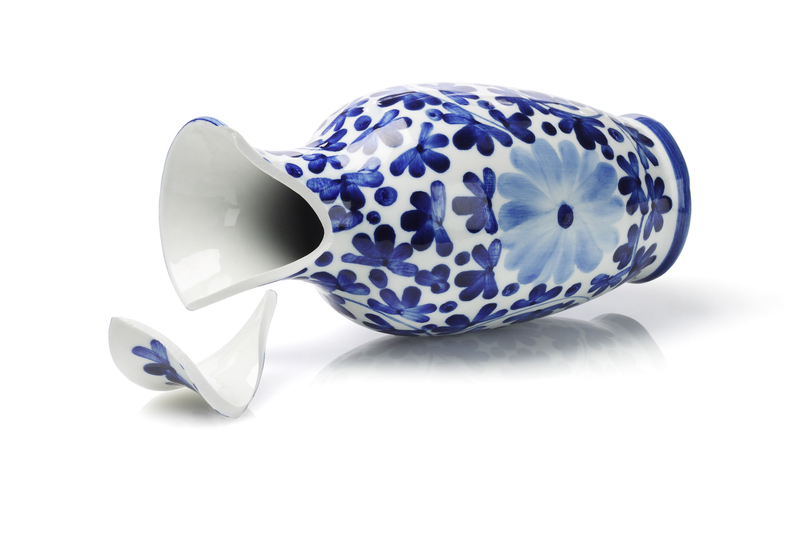How to Clean and Store a Freezer for Extended Periods
Freezers are an essential appliance for modern homes and businesses. They not only make long-term food storage possible but also play a significant role in reducing waste. However, there are times when you might need to leave your freezer unused for a prolonged duration, such as during long vacations, moves, or seasonal closures. In such instances, knowing how to clean and store a freezer for extended periods is crucial for maintaining its longevity and ensuring food safety in the future.
Why Proper Freezer Cleaning and Storage Matter
Improper cleaning or neglect before a period of non-use can lead to mold growth, foul odors, mechanical issues, and pest infestations within your freezer. These problems not only impact the appliance but can also affect your home's hygiene. A methodical approach to cleaning and storing your freezer will help preserve its condition, enhance efficiency, and ensure a smooth restart when needed.

Preparing to Clean Your Freezer
Gathering Essential Cleaning Supplies
- Soft sponge or cloth
- Baking soda or mild soap
- Vinegar (optional for natural deodorizing)
- Bucket of warm water
- Old towels for spills
- Gloves to protect your hands
- Vacuum or handheld brush for coils and nooks
Unplug and Empty Your Freezer
Before you begin any cleaning, unplug your freezer. This step is both an energy-saving measure and a safety precaution. Remove all contents, sorting through items. Use a cooler with ice packs if you intend to save anything, but preferably, dispose of all perishables if you are preparing for extended storage.
How to Defrost Your Freezer Properly
Most freezers need to be defrosted periodically to remove ice build-up, which can cause inefficiency and lead to water leakage during storage.
- Turn Off and Prop Open the Door: Unplug the appliance and leave the door open to accelerate the defrosting process.
- Remove Ice Build-Up: Gently chip away large pieces of ice using a plastic or wooden spatula--never use sharp metal tools as they can puncture the lining.
- Soak Up Excess Water: Use old towels to absorb melting ice and water. Position a tray or baking sheet at the base to catch drips.
Tip: Place bowls of hot water inside the freezer and close the door (if possible) to help hasten the process.
Step-by-Step Guide to Deep Cleaning Your Freezer Before Storage
- Wash Shelves and Drawers: Take out all removable parts, such as shelves and baskets. Soak them in warm, soapy water, scrub, rinse, and let dry completely.
- Clean the Freezer's Interior: Mix two tablespoons of baking soda with a quart of warm water for a mild cleaning solution. Wipe down all interior surfaces, including corners, with a sponge or cloth.
- Address Stubborn Stains and Odors: For sticky or persistent spots, use a paste of baking soda and water or a diluted white vinegar spray. Let it sit for 2-3 minutes, then wipe away.
- Don't Forget the Door Seal (Gasket): Wipe the rubber seal with soapy water and check for cracks. The gasket must be clean and flexible to keep pests and air out while in storage.
- Dry Completely: Moisture can breed mildew and mold, so use a dry towel to thoroughly wipe all surfaces.
Deodorizing the Freezer
- Use Baking Soda: After cleaning, leave an open box or bowl of baking soda inside to absorb lingering smells.
- Charcoal or Coffee Grounds: These also work well as natural deodorizers when left inside the appliance for several hours.
Exterior and Coil Cleaning
To maximize freezer performance and prevent dust from damaging internal parts during storage, don't neglect the exterior and coils.
- Wipe Down the Outside: Use a damp cloth and mild detergent to clean the doors and body. Don't use abrasive cleaners, as they may scratch the finish.
- Clean the Coils: If accessible, vacuum or gently brush dust from the condenser coils, usually located on the back or underneath. Clean coils help keep the freezer energy-efficient and reduce fire risk.
How to Store a Freezer for Extended Periods
Step 1: Choose an Appropriate Storage Location
Select a storage space that is:
- Dry and well-ventilated to avoid rust and mildew
- Protected from direct sunlight and excessive heat
- Preferably indoors, such as a garage, basement, or storage unit
Step 2: Keep the Freezer Door Ajar
To prevent mold, mildew, and musty odors, leave the door slightly open (about half an inch to an inch). Most freezers have an automatic mechanism to hold the door open, but you can also use a rolled-up towel, rubber wedge, or bungee cord to keep it ajar.
- Warning: Make sure children or pets cannot access or get trapped inside an unused freezer. Remove the door entirely or secure it with a strap if necessary.
Step 3: Protect from Pests
- Seal Access Points: Tape over vents or any gaps to keep out insects and rodents during storage.
- Use Mothballs or Natural Repellents (optional): Place them nearby to discourage pests, but never put them inside the freezer.
Step 4: Store Accessories Separately
Place removable shelves, baskets, or trays inside a clean, dry bag. Label and store them within the freezer (door ajar) or keep separately to prevent misplacement.
Helpful Tips for Long-Term Freezer Storage
- Do Not Plug In: Never leave the freezer plugged in without contents. Empty, unused freezers can develop foul odors and consume unnecessary power.
- Check Regularly: If possible, inspect the appliance every couple of months for moisture, rust, or pests. Catching problems early can save you from costly repairs or replacements.
Restarting Your Freezer After Storage
Inspection Before Use
- Look for Debris or Insects: Wipe the interior and remove any pests or dust.
- Examine the Power Cord and Plug: Ensure there are no frayed wires or visible damage.
- Check Door Seal Integrity: The gasket should be flexible and uncracked for best performance.
Let the Freezer Cool Down
Plug in the appliance and allow it to reach optimal freezing temperature (typically 0?F or -18?C) before restocking. This can take several hours to overnight. Use a thermometer to ensure the temperature is safe for food storage.
Frequently Asked Questions About Freezer Care During Extended Storage
How often should I clean my freezer if I don't use it?
Even if unused, check and wipe down your freezer every 6-12 months to prevent mold growth or stale odors from developing.
Should I leave the freezer plugged in if I am storing it empty?
No. If you are not using the freezer, it should be unplugged to save energy and prevent the risk of electrical short-circuits or fire.
Can I store my freezer outside?
Storing a freezer outdoors is not recommended as changes in humidity, precipitation, and temperature can damage sensitive electrical components and cause rust or corrosion.
What can I use to prevent mold while the freezer is stored?
Leave the door slightly open and place a box of baking soda or a moisture-absorber packet inside the appliance. Some people also use quartz crystals or silica gel for extra protection against humidity.

Common Mistakes to Avoid
- Shortcuts on Defrosting: Using sharp tools can puncture the internal lining and cause irreparable damage.
- Leaving Moisture Inside: Not drying thoroughly is a top cause of mold and unpleasant smells.
- Failing to Secure the Door: Closing the door tightly during storage can trap residual moisture and encourage mildew.
- Neglecting Coil Maintenance: Dusty or dirty coils reduce efficiency and increase the risk of component failure.
Final Thoughts on Cleaning and Storing Your Freezer for the Long Haul
Taking the time to properly clean, defrost, and prepare your freezer protects your investment and ensures good hygiene for your household or business. Always remember to empty, wash, dry, and deodorize the unit before storage. Keep the door ajar, store in a safe location, and check periodically for any issues.
By following these comprehensive steps on how to store a freezer for extended periods, you can guarantee that your freezer remains in top-notch condition, ready to serve you efficiently when you need it again.